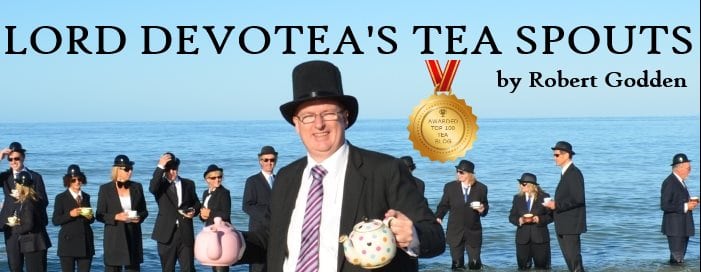No verse can give pleasure for long, nor last, that is written by drinkers of water. (Horace)
My friends, this is it. This is the blog you need to share with your friends, your colleagues, your enemies, your competitors, your relatives. It’s the point where tea takes front and centre stage. It’s rightful place.
No more Mr Nice Guy. It’s time to deal with this:
“Tea is the second most consumed beverage in the world, after water”.
It’s something you hear a bit. But you also hear people say it about coffee and occasionally beer.
No longer should we tea drinkers be prepared to merely defend this statement against coffee or beer. But let’s start with that.
Let’s look at coffee. It’s the easy one to check.
I analysed a lot of data on production via the United Nations. Whilst there are some fascinating tidbits (who knew Portugal had 40 hectares of tea-production in 2011?) the numbers over the last few years have been fairly consistent.
When you use this ratio:
Amount of Coffee Required Per Cup/Amount Produced : Amount of Tea Required Per Cup/Amount Produced
over the last few years the typical result is 50:51
So the implication is that about two percent more cups of tea are drunk than coffee. Not a huge margin of certainty.
But we add two other factors: (a) coffee is more likely to be used as a flavouring and not drunk than tea (b) even if only a tiny portion of tea drinkers re-steep, that’s still more cups of tea. No-one resteeps coffee.
Whilst we must be vigilant, it’s clear that tea is ahead: IN YOUR FACE, COFFEE as those madcap youngsters say these days!
As to beer, beer can kiss my backside, as we cultured Australians are wont to say. Well, most Australians are more likely to say things to beer like “I love you, mate, you’re my best friend” but the fact is the Kirin Beer University (The most credible data source since The Ponds Institute, IMIO*) gives an annual production figure in liquid form that works out to a tenth of the liquid results of all that tea.
So, I’ve dealt with coffee. I’ve dealt with beer.
Now let’s deal with water.
You see, I don’t accept that “water is the most widely-drunk beverage in the world”.
Before any nay-saying, harrumphing or tut-tutting commences, let me say I have no problems with nine out of ten of those words.
It’s the word “beverage”.
Let’s consult a few dictionaries to define beverage:
The Oxford: (chiefly in commercial use) a drink other than water.
The Free Dictionary: Any one of various liquids for drinking, usually excluding water.
Dictionary.com: any potable liquid, especially one other than water, as tea, coffee, beer, or milk
Wordreference.com: a drink, usually other that water
In fact, of the top ten search results I got, only Merriam Webster did not specifically exclude water, and as regular readers know, I consider Mr Webster one of the most ridiculous men ever to walk this planet, so I am quite prepared to accept that they are wrong in this, and virtually everything else.
So, water is out. Disqualified. Not even in the race. Coffee is credible but behind, beer is lost in the rear view mirror. Here’s the sentence you need to learn:
Tea is the most widely-drunk beverage in the world.

*IMIO = In my insincere opinion.

At last tea receives its rightful place!
I wonder if this hard data is enough to convince Michael Coffey? To me your numbers are spot on and meticulously researched. Well done.
PS: If it’s on Tea Trade, it’s gotta be right.
Words and statistics 😉
I must have missed the memo, I didn’t know tea had declared war on all the other beverages, Ooops sorry, drinks. 😉
BTW, without water there is no coffee, tea, beer, soda, etc etc so while your removal of it from the “dataset” is from a literary view accurate, it completely ignores our complete dependence upon it. So I guess it’s semantics FTW.
True but for @thedevotea we should only use precise and exact words or stats (but he likes when we don’t do that as otherwise, he would have no fun).
Tea lends itself to more additional ingredients that are conducive to wellbeing and assisting to counter dis-ease, especially green tea.
I agree with the first part.
The ingredient that green tea has with regard to its superiority over all other teas in regards to health is marketing.